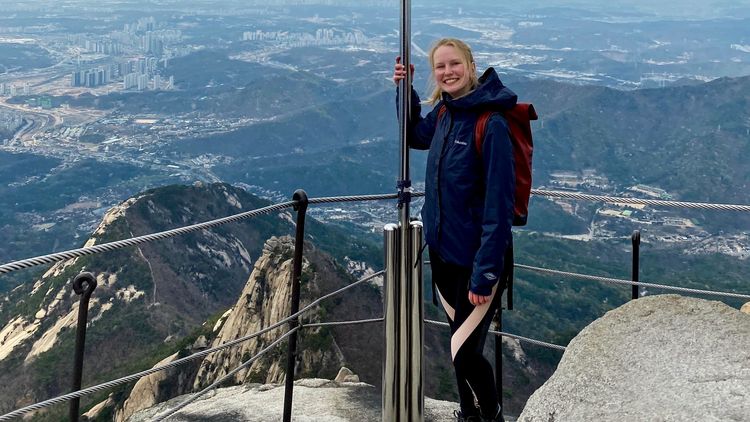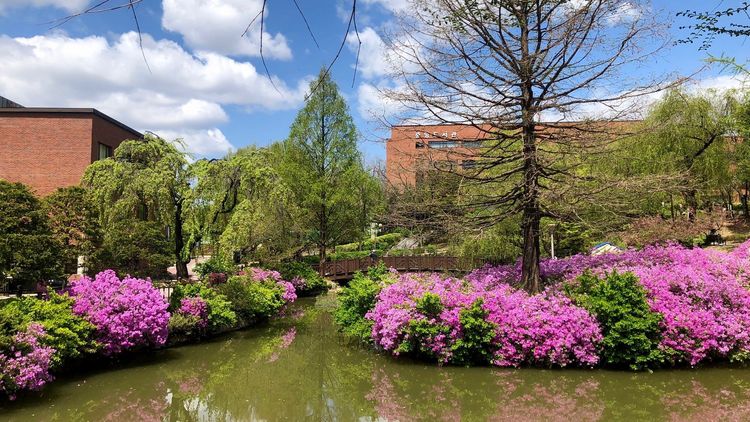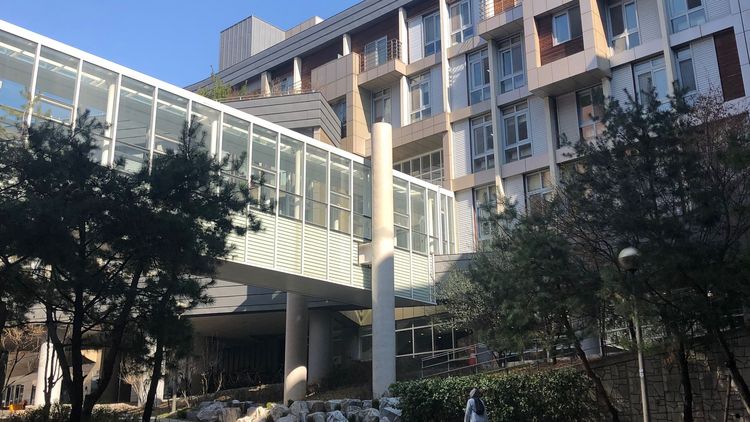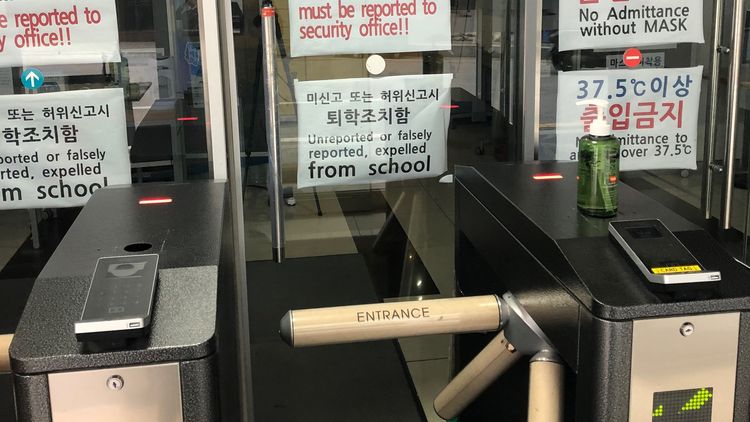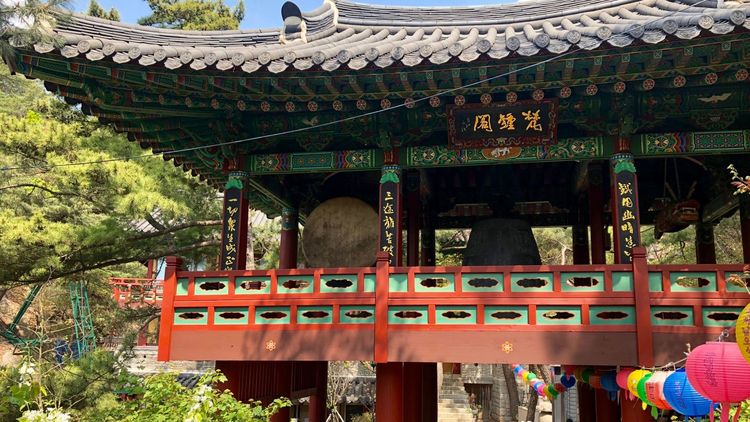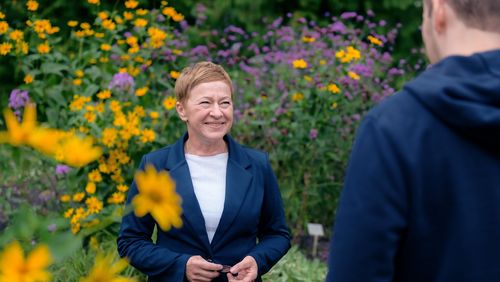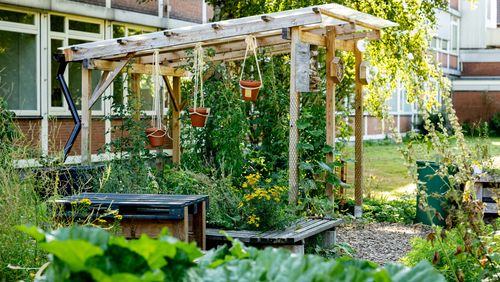Despite the corona pandemic, master student Leah Hupp is currently completing a semester abroad at the University of Seoul - and is impressed by the South Korean crisis management.
Spending one or two semesters at a university abroad – that is the dream of many students. But as the corona pandemic spread further and further at the beginning of the year, many had to postpone or even abandon their plans. Travel warnings, quarantine measures, closed universities or worries about their own health let the prospect of a carefree period of study in other countries become a distant one.
One of those who stuck to her plans despite these uncertainties is Leah Hupp. The 24-year-old is studying Sustainability Economics and Management (SEM) in Oldenburg and travelled to Seoul for a semester abroad in mid-March. At that time South Korea was the country with the most corona infections after China. "My friends, family and I had given a lot of thought to how the situation would develop," remembers the student. In mid-March, the corona pandemic still seemed a long way from Europe. "The images that reached me from South Korea, on the other hand, seemed very surreal."
One of the few students from Oldenburg who went abroad
But Hupp had been preparing to go to South Korea for more than a year and did not want to miss the chance. "After learning about crisis management in South Korea and talking to Korean friends, I had the feeling that I would be in good hands in Seoul despite the circumstances," she says. This makes Hupp one of the few students from Oldenburg who went abroad this summer semester. "Most of them broke off or postponed their stay," says Roman Behrens of the university’s International Office (IO), who is responsible for student stays abroad in Russia, Asia, Africa, Australia and the Middle East.
In order to provide the best possible support for students who nevertheless dared to take the step abroad, the staff of the IO have been in even closer contact with the partner universities since the beginning of the pandemic. "We are very well connected and receive a lot of important information from our colleagues abroad. This enables us to provide our students with first-hand information and help them with many decisions," says Behrens.
The online-semester is running smoothly
South Korea in particular has been very consistent in its efforts to combat the pandemic right from the start - for example, with extensive testing and a surveillance app. When Leah Hupp entered the country on March 13, this well-organized approach gave her a great deal of security: "The temperature was measured at the airport, everyone wore a face mask, and there was hand disinfectant on every corner," she says.
But this did not change the fact that the semester would also start digitally at the University of Seoul, which has been a partner university of the University of Oldenburg since 2016. After Hupp was already in the country, it turned out that the entire semester would eventually be online. However, the student doesn't see this as a disadvantage: "By working through video lectures and small weekly homework assignments on your own, you get to deal with the lecture content more intensively," she reports. "The semester is running smoothly, and the lecturers are very courteous and try to make the best of the situation.” Even new opportunities have opened up for Hupp due to the Corona pandemic: Thanks to the online semester she can also take a course in Oldenburg while being far away from home.
Getting to know fellow students in the digital world
Since public life in South Korea has experienced less drastic restrictions than in Germany, Hupp is currently enjoying an almost normal student life. On campus, for example, the cafeteria and library have been accessible the entire time, and restaurants, cafés, bars and clubs are also largely open. The student mentors of the University of Seoul had already contacted the exchange students in advance and created a social media group so that everyone could get in touch with each other. "I was therefore able to get to know my fellow students on my first day in Seoul," says Hupp. Within South Korea she was able to move around the whole time without any problems, she reports.
In Hupp’s view it is the successful crisis management in the country that has made her experience possible. For example, poster pointing out distance rules or sneezing labels are visible all over the city, she reports. Moreover, the public’s attitude is impressive, she holds, as everyone is cooperative and almost constantly wears a mask. "Everyone’s well-being seems to be higher than in Germany," says Hupp. "All in all, I am very grateful to be able to complete my semester in Seoul almost without restriction despite the difficult situation. This cannot be taken for granted."

